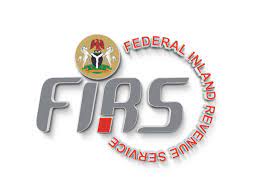Economy
FAAC Shares N903.480 bn September revenue to FG, States, LGs

The Federation Account Allocation Committee (FAAC) has shared a total of N903.480 billion September 2023 Federation Account Revenue to the Federal Government, states and Local Government Councils (LGCs).
This is contained in a communique issued by the FAAC at the end of its October meeting held in Abuja on Tuesday.
The communique indicated that the N903.
480 billion total distributable revenue comprised distributable statutory revenue of N423. 012 billion, Value Added Tax (VAT) revenue of N282.666 billion, Electronic Money Transfer Levy (EMTL) revenue of N10.989 billion and Exchange Difference revenue of N 186.813 billion.It stated that a total revenue of N1594.
763 billion was available in the month of September 2023.“Total deductions for cost of collection was N54.426 billion, total transfers and refunds was N347.857 billion and savings was N289.000 billion,” the committee stated.
It said that gross statutory revenue of N1014.953 billion was received for September, which was higher than the N891.934 billion received in August by N123.019 billion.
It added that the gross revenue available from VAT was N303.550 billion, which was lower than the N345.727 billion available in August by N42.177 billion.
“From the N903.480 billion total distributable revenue, the Federal Government received a total of N320.543 billion, the state governments received N287.071 billion and the LGCs received N210.900 billion.
“A total sum of N84.966 billion (13 per cent of mineral revenue) was shared to the relevant states as derivation revenue.
“From the N423.012 billion distributable statutory revenue, the Federal Government received N190.849 billion, the state governments N96.801 billion and LGCs received N74.629 billion.
“The sum of N60.733 billion (13 per cent of mineral revenue) was shared to the relevant states as derivation revenue,’” it said.
It said that the Federal Government received N42.400 billion, the state governments received N141.333 billion and the LGCs received N98.933 billion from the N282.666 billion VAT revenue.
The communique further said that N10.989 billion EMTL was shared as follows:
The Federal Government received N1.648 billion, the state governments received N5.495 billion and the Local Government Councils received N3.846 billion.
“The Federal Government received N85.647 billion from the N186.813 billion Exchange Difference revenue, the state governments received N43.442 billion, and the LGCs received N33.491 billion.
“The sum of N24.233 billion (13 per cent of mineral revenue) went to the relevant states as derivation revenue.
“The balance in the Excess Crude Account (ECA) was 473,754.57 dollars,” it said.
The News Agency of Nigeria (NAN) reports that in September, Petroleum Profit Tax (PPT) and Oil and Gas Royalties increased considerably while VAT, Import and Excise Duties, EMTL, Companies Income Tax (CIT) and CET Levies recorded significant decreases. (NAN)
BUSINESS
NSIA Net Assets Hit N4.35trn in 2024
By Tony Obiechina Abuja
The Nigeria Sovereign Investment Authority (NSIA) yesterday disclosed that its net assets grew from N156bn in 2013 to N4.35 trillion in 2024.
Similarly, the Authority has remained profitable for 12 consecutive years, leading to cumulative retained earnings of N3.
74 trillion in 2024.Managing Director and Chief Executive Officer of NSIA, Aminu Umar- Sadiq made these disclosures at a media engagement in Abuja, highlighting its audited financial results for the 2024 fiscal year.
According to him, the results underscored the resilience of the authority’s investment strategy and the strength of its earnings, driven by a well-diversified revenue base and robust risk management practices, despite a challenging global macroeconomic and geopolitical environment.
Total operating profits, excluding share of profits from associates and Joint Venture (JV) entities, increased from N1.17 trillion in 2023 to N1.86 trillion in 2024, driven by the strong performance of
NSIA’s diversified investment portfolio, infrastructure assets, gains from foreign exchange movements, and derivative valuations.
In addition, Total Comprehensive Income (TCI), inclusive of share of profits from associates and JV entities, reached N1.89 trillion in 2024, reflecting a 59 per cent increase from N1.18 trillion in 2023.
Core TCI (excluding foreign exchange and derivative valuation gains) rose by 148 per cent to N407.9 billion in 2024 compared to N164.7 billion in 2023, supported by robust returns on financial assets measured at fair value through profit and loss, including collateralised securities, private equity, hedge funds, and Exchange-Traded Funds (ETFs).
Umar-Sadiq said the authority’s outstanding financial performance in 2024 reflected the “strength of our strategic vision, disciplined execution and unwavering commitment to sustainable socio-economic advancement.”
He said, “By leveraging innovation, strategic partnerships and sound risk management, we have not only delivered strong returns but also created value for our stakeholders
“As we move forward, we remain focused on driving economic transformation, expanding opportunities, scaling transformative impact and ensuring long-term prosperity for current and future generations of Nigerians.”
The CEO reaffirmed the authority’s commitment to managing the country’s SWF, and delivering the mandates enshrined in the NSIA Act.
He said NSIA remained poised to continually create long-term value for its stakeholders by delivering excellent risk-adjusted financial results, developing a healthy and well-diversified portfolio of assets and large-scale infrastructure projects, and enhancing the desired social outcomes.
He noted that NSIA was committed to its mandate of prudent management and investment of Nigeria’s sovereign wealth.
“In adherence to its Establishment Act, NSIA prioritises transparency, disclosure, and effective communication with all stakeholders and counterparties,” he said.
He pointed out that in the year under review, a new board, led by Olusegun Ogunsanya as Chairman, was appointed by President Bola Tinubu, in accordance with the provisions of the NSIA Act.
The new board will provide strategic direction and oversight, in addition to playing a pivotal role in critical decision making.
He remarked that under the guidance of the Board, the Authority will retain focus on its primary mandate of creating shared value for all stakeholders based on its continued adoption of corporate governance practices.
“NSIA prides itself an investment institution of the federation established to manage funds in excess of budgeted oil revenues and its mission is to play a pivotal role in driving sustained economic development for the benefit of all Nigerians through building a savings base for the Nigerian people, enhancing the development of the county’s infrastructure, and providing stabilisation support in times of economic misadventure,” he added.
Economy
FIRS Chairman seeks Review of Tax Incentive Schemes.

By Tony Obiechina Abuja.
The Executive Chairman of the Federal Inland Revenue Service (FIRS) Zacch Adedeji, on Tuesday, revealed that revenue lost to tax expenditure remains difficult to quantify due to poor data availability across relevant government agencies.
According to him, tax incentives are not properly weighed against their real economic benefits, making it difficult to know their true cost which eventually creates room for unverified tax expenditure figures in different quarters.
Adedeji made the revelation while delivering a keynote address at the 2025 Tax Expenditure Workshop organized by the Tax Expenditure Management Unit of the FIRS Corporate Services Group in Abuja.
The event, themed “Tax Expenditure and Its Effect on Government Revenue,” was aimed at examining whether tax incentives are genuinely driving economic growth or quietly draining the nation’s revenue base.
The FIRS chairman, who was represented by the Coordinating Director, Corporate Services Group, Bolaji Akintola, said the policy directive was designed to support critical sectors such as industrialisation, employment creation, innovation, infrastructure, and foreign exchange earnings.
However, the lack of proper data management and impact assessment has made it difficult to evaluate the true cost and benefit of these incentives.
He said, “Tax expenditures have serious direct and indirect impacts on the citizenry, especially based on equity and fairness. We all know that the Fiscal Responsibility Act of 2007 mandates that Agencies of government provide an evaluation of the budgetary and financial implications of any proposed tax expenditure each year.
“Tax expenditures, like direct expenditures, affect the government budget as it is an expenditure that is spent indirectly by the government through tax exemption, tax deduction, tax offset, concessional tax rate or deferral of tax liability.
” It is granted for several reasons, among which are to encourage industrialisation, creation of employment, provision of infrastructure, foreign exchange earnings, positive balance of trade, encouragement of innovations and reaching the underserved locations.
“It has been argued that the government is losing revenue through tax incentives, which have been difficult to quantify due to limited data availability. In granting tax incentives by the government, there are expected benefits to be derived from the entities that enjoy these incentives, such that if adequately quantified when analyzing the Tax Expenditures in terms of socio-economic impact will show that the actual financial cost to government vis – a viz benefits will be minimized, and a positive developmental curve or growth curve will be observed.
“It is the lack of this adequate monitoring tool on impact assessment that gives room to the ‘IFs’ and ‘Buts’ which create room for these unverified tax expenditure figures in different quarters.”
Adedeji further lamented that many stakeholders operate in silos, with no central coordinating framework for tax incentives, and highlighted the absence of a dedicated tax committee in the National Assembly.
Other challenges he identified include conflicting incentive schemes, Base Erosion and Profit Shifting, and politically motivated tax policies.
He noted that the Fiscal Responsibility Act 2007, which mandates all government agencies to evaluate the financial implications of proposed tax expenditures annually, is often poorly implemented.
To resolve this, the FIRS boss disclosed that the Service has empowered its Tax Expenditure Management Unit to evaluate and monitor all tax incentives, adding that the unit is now supported by the integrated digital tax administration system (TaxPro Max).
“While some abuses have been noticed in tax expenditure management, there is also the question about the continued relevance of some of the Tax Incentives. It is, therefore, important that innovative strategies are adopted to achieve efficiency in tax expenditure management,” he added.
Adedeji called for amendments to the various laws underpinning tax expenditures, saying this has become necessary to prevent abuse and ensure the system is flexible enough to keep pace with global reforms, such as the OECD’s Pillar II global minimum tax rule.
He advocated for a centralized framework to regulate and monitor tax incentives, stressing the need for consistent cost-benefit analyses to determine which incentives should be sustained.
This, he said, would also help eliminate duplication and overlap among Ministries, Departments and Agencies.
Adedeji noted that while the FIRS is currently focused on extracting and computing tax expenditure data, the responsibility for assessing their impact still lies largely with administering agencies such as the Nigerian Investment Promotion Commission, the Nigeria Export Processing Zones Authority, and the Oil and Gas Free Zones Authority.
He also called for stronger inter-agency collaboration and emphasised the need to regularly assess the continued relevance and impact of tax incentives on national development.
“We believe that data is life in tax expenditure reporting. That is why the Service will continue to collaborate with the ECOWAS, IMF, World Bank, and the Addis Tax Initiatives to build a robust tax expenditure value chain,” he stated.
Speaking further, Adedeji revealed that the FIRS is currently contributing over 60 per cent of monthly inflows to the Federation Account, a result of several reform initiatives.
Despite these milestones, he said the FIRS is challenged by increasing demand for greater tax revenue amidst declining direct contributions by some Ministries, Departments and Agencies.
He said, “The FIRS is currently challenged by the ever-increasing demand for greater tax revenue collection by the government at all levels, especially in the face of dwindling direct revenue contributions by some MDAs. Under this current dispensation, the Service is contributing an average of over 60 per cent monthly to the Federation Account.
“This is due to several proactive and reformative steps adopted by the Service. In 2024, we recorded a collection figure of N21.6tn, and in the current year, we are targeting a revenue collection of N25.2tn.”
| ReplyReply allForwardAdd reaction |
economy
Council Chairman Commends FG on Coastal Highway Project in Cross River.

From Ene Asuquo, Calabar
The Executive Chairman of Akamkpa Local Government Area, Hon. Felix Akposi has commended the Federal Government for the commencement of the Cross River State axis of the Lagos–Calabar Coastal Highway, describing the project as a monumental infrastructural breakthrough with vast potential for economic transformation across the state.
In a statement released to the press, Hon.
Akposi noted that Akamkpa, being among the host local government areas of the coastal highway, will strategically leverage the project to advance its developmental frontiers. He envisioned a rapid transformation in the area marked by the emergence of new towns, urban conurbations, and epicenters of agricultural and social tourism.According to the Chairman, “The intersection of the coastal highway with the Calabar–Ikom Highway will be a commercial hub, hence we are proposing an organized layout within the area. Accordingly, the Works and Infrastructure Unit of the Local Government Council is to synergize with the State Government and the Federal Ministry of Works to plan the layout within the axis.”
He further added, “We know that the demand for land within this axis will be very high in the coming days, hence it’s best to have a neatly planned layout before people will deface the area.”
Hon. Akposi used the opportunity to express deep appreciation to the Governor of Cross River State, His Excellency Sen. (Apostle) Prince Bassey Edet Otu, for what he described as proactive and pragmatic leadership. He described the governor as a strategic leader under whose watch the state has witnessed remarkable developmental strides.
“Just recently, the Vice President of the Federal Republic of Nigeria, Sen. Kashim Shettima, was here for the groundbreaking ceremony of the Special Agro Processing Zone in Adiabo. Today, we have yet another Federal presence in the groundbreaking ceremony for the Cross River State axis of the Lagos–Calabar Coastal Highway,” Akposi stated.













